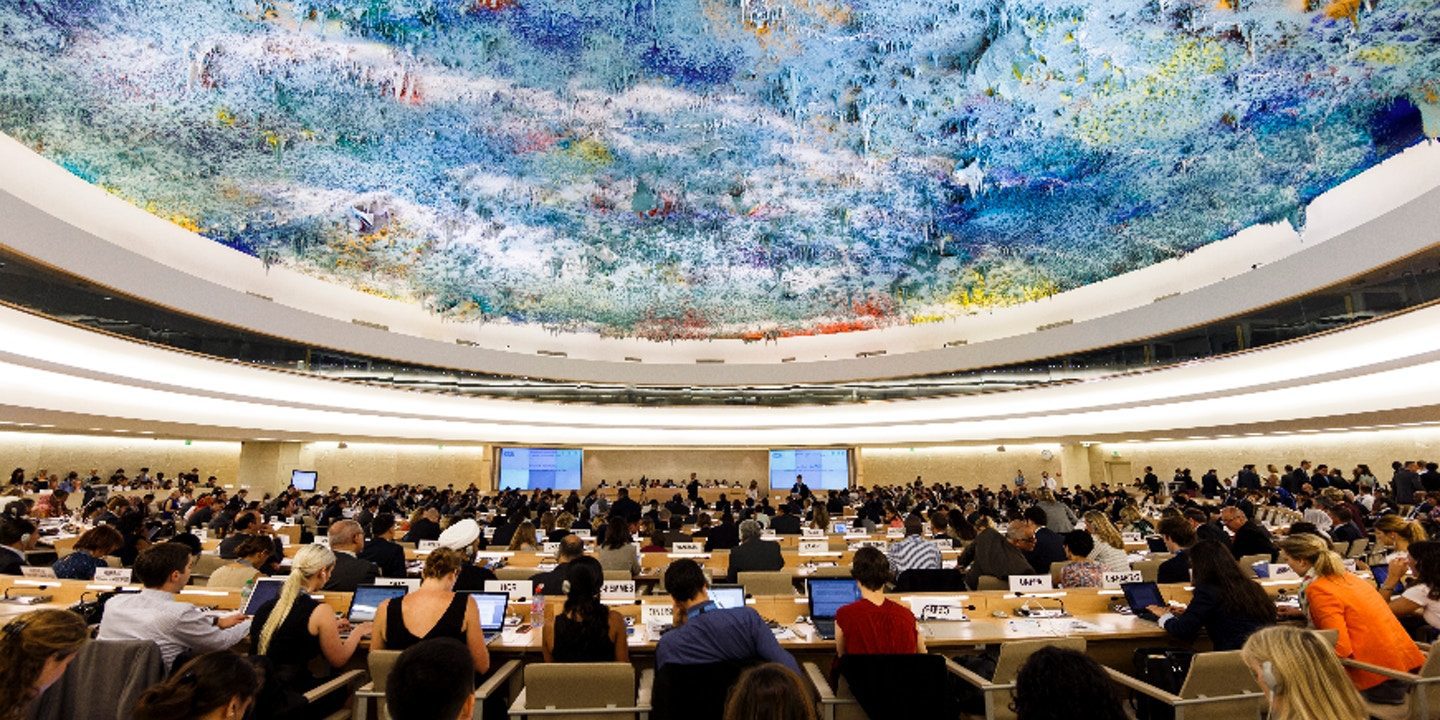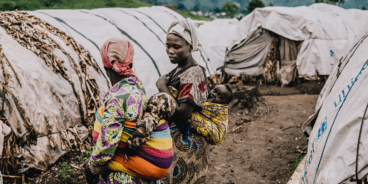

The Human Rights Council should extend its support to, and scrutiny of, Sudan
To Permanent Representatives of Member and Observer States of the United Nations (UN) Human Rights Council, Geneva, Switzerland
Excellencies,
Ahead of the 48th session of the UN Human Rights Council (13 September-8 October 2021), we, the undersigned civil society organisations, write to highlight the need for the Council to continue supporting human rights reforms in Sudan, both through technical assistance and capacity-building and by holding public debates on progress and challenges, as well as the work of the Office of the UN High Commissioner for Human Rights (OHCHR) in the country.
As Sudan’s political transition remains incomplete, the Council has a responsibility to support national authorities and actors, including civil society organisations, and to maintain the monitoring and public reporting capacity of OHCHR, which should form a basis for annual enhanced interactive dialogues at the Council.
Last year, by adopting resolution 45/25 by consensus, the Council decided to end the mandate of the Independent Expert on the situation of human rights in the Sudan and to request OHCHR to report on progress made and ongoing human rights challenges in the country. Pursuant to the resolution, and on the basis of the High Commissioner’s universal mandate, the OHCHR has continued to provide valuable updates on human rights developments in Sudan.
In its last report, the OHCHR said it was “encouraged by the positive steps taken by the Government of the Sudan to address systemic human rights and rule-of-law concerns […].” It added: “However, the prolonged precarious situation in Darfur and in South Kordofan and Blue Nile states, coupled with the unresolved root causes of the conflict, often lead to the reoccurrence of violence, resulting in significant civilian displacements, with immediate human rights and protection implications. Following the termination of the [UN/African Union Hybrid Operation in Darfur, UNAMID] mandate in December 2020, civilian vulnerability increased, which manifested itself in a series of violent incidents in Darfur. For the most part, the violence was triggered by intercommunal feuds and the impunity arising from weak law enforcement and judicial institutions.”
In its report, the OHCHR also expressed a series of other concerns, including the curtailment of the rights to freedom of expression, association, peaceful assembly and participation, the targeting of journalists and human rights defenders by security forces, and sexual and gender-based violence against women and girls.
The report identified protection gaps and formulated recommendations pertaining to protection of civilians, economic, social and cultural rights, human rights mechanisms, accountability, and legal and institutional reforms. Additionally, it endorsed all recommendations made by the Independent Expert in his final report.
This year, as a fully mandated OHCHR country office is operational*, and taking note of the latter’s capacity to identify and report on both positive developments and challenges and risks, the Council should acknowledge that monitoring and reporting complement technical cooperation.
Building upon the good level of cooperation between the Sudanese authorities and the UN human rights system, and cognizant of ongoing challenges on the ground and possible monitoring and reporting gaps due to the UNAMID drawdown, the Council should signal its willingness to both continue supporting Sudan and extend its scrutiny of the country’s human rights situation.
The last two and a half years have brought about significant changes for the Sudanese people and Sudan’s relationship with independent human rights actors. Some of these changes have the potential to become systemic, if they are sustained and complemented with wide-ranging institutional, legislative, and policy reforms. A joint civil society letter, issued in September 2020,[5] contains a summary of progress in these areas as well as regarding Sudan’s peace process. Since then, further reforms have been announced, including the ratification of key human rights instruments and enhanced cooperation with the International Criminal Court (ICC).
However, Sudan continues to face significant human rights, humanitarian, political, economic, social, and health challenges. In recent months, violence against civilians in Darfur and intercommunal conflicts in the Eastern part of the country have increased. Significant steps are yet to be taken to address systemic human rights issues and achieve meaningful, sustainable progress. Justice and accountability remain elusive for the egregious violations and abuses committed under the 30-year Al-Bashir dictatorship, including violations that may amount to crimes under international law, especially in Darfur, Blue Nile, and South Kordofan, and the 3 June 2019 massacre. Freedom of opinion and expression, as well as the right of access to information, continue to suffer from legal provisions and practices that undermine fundamental rights. Barriers to the enjoyment of the rights to freedom of peaceful assembly and association, as well as of freedom of religion or belief, remain in place.
In this context, the Human Rights Council has a responsibility to keep Sudan high on its list of priorities and to contribute to meaningful progress in the country.
For its part, in line with its announced “full cooperation policy” and the positive steps it has taken in multilateral arenas, the Sudanese Government should continue to use all possible avenues of work with the UN human rights system. It should continue to send positive signals to the international community by taking the lead in the development and adoption of a resolution that extends the holding of enhanced interactive dialogues on Sudan at the Human Rights Council. This multilateral effort would constitute the perfect corollary to the Government’s bilateral cooperation with OHCHR.
At its upcoming 48th session, the Council should adopt a resolution extending technical assistance and capacity-building to the Sudanese Government and human rights actors in the country, while ensuring regular monitoring of, and reporting to the Council on, the human rights situation and the work of the OHCHR country office.
We thank you for your attention to these pressing issues and stand ready to provide your delegation with further information as required.
Sincerely,
- Act for Sudan
- Africa Initiative for Media & Journalists Safety (AIM – Journalists Safety)
- African Centre for Justice and Peace Studies (ACJPS)
- AfricanDefenders (Pan-African Human Rights Defenders Network)
- Al Khatim Adlan Centre for Enlightenment and Human Development (KACE)
- Amnesty International
- Brooklyn Coalition for Darfur & Marginalized Sudan
- Cairo Institute for Human Rights Studies (CIHRS)
- CIVICUS
- CSW (Christian Solidarity Worldwide)
- Darfur and Beyond
- Darfur Bar Association
- DefendDefenders (East and Horn of Africa Human Rights Defenders Project)
- Global Centre for the Responsibility to Protect
- Human Rights Advocacy Network for Democracy
- Human Rights Watch
- International Federation for Human Rights (FIDH)
- International Refugee Rights Initiative (IRRI)
- International Service for Human Rights (ISHR)
- Investors Against Genocide
- Jewish World Watch
- Journalists for Human Rights (JHR) – Sudan
- Justice Center for Advocacy and Legal Consultation
- Massachusetts Coalition to Save Darfur
- Never Again Coalition
- Nubia Project-USA
- PAX
- REDRESS
- Sudan Civil Society Initiative
- Sudanese Human Rights Initiative (SHRI)
- Sudanese Lawyers and Legal Practitioners’ Association in the UK
- Sudanese Rural Association for Peace and Development (SRAPD)
- Sudanese Transitional Justice Organization (STJO)
- Sudan of The Future
- Sudan Social Development Organisation (SUDO)
- SUDO (UK)
- Sudan Unlimited
- Waging Peace
*According to OHCHR, “As of 1 January 2021, in line with the 2011 policy on human rights in United Nations peace operations and political missions, the OHCHR country office in the Sudan has been integrated with the [UN Integrated Transition Assistance Mission in Sudan (UNITAMS)] Office of Support to Civilian Protection, referred to in the present report as the United Nations Joint Human Rights Office in the Sudan. Currently, the Joint Office has 21 staff, including 3 staff in three field offices (El Fasher, Kadugli and El Damazin), and recruitment is ongoing.” OHCHR officers have also conducted field missions (Ibid., paras. 1-2; 4).
However, a more regular presence in conflict-affected areas is yet to be established. There is also a need to integrate human rights monitoring and reporting of OHCHR fully into UNITAMS.
Related Content


